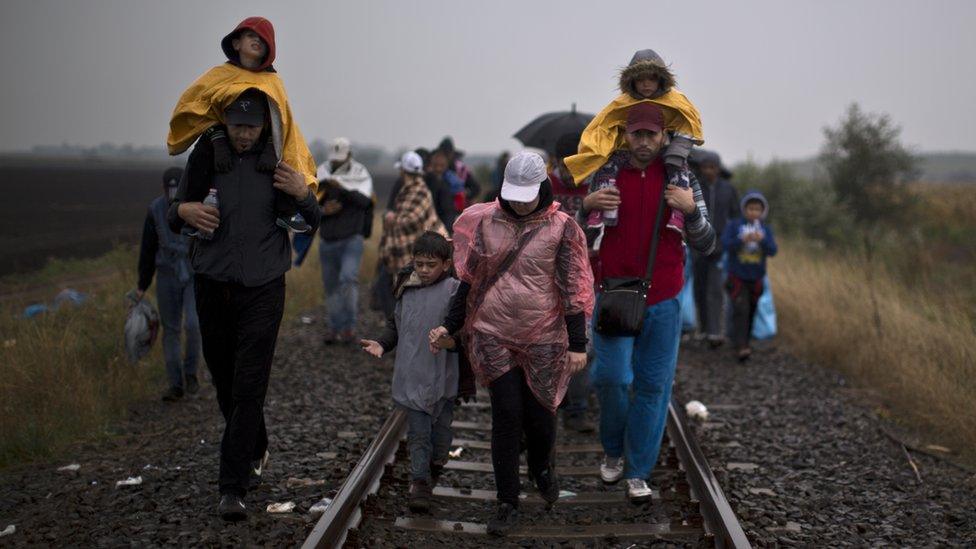The realities of being a refugee in Northern Ireland
- Published
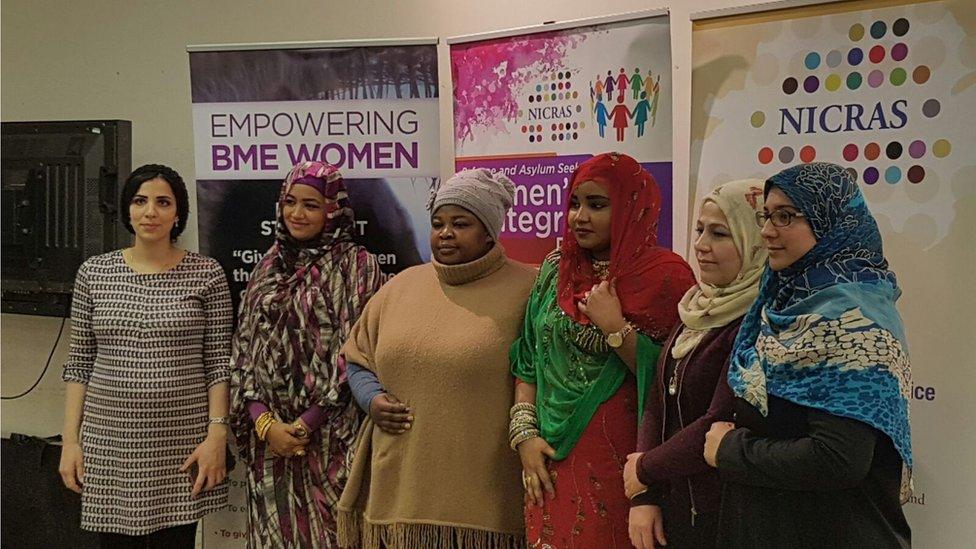
The women, who come from places such as Iraq, Sudan and Zimbabwe, shared their experiences at an event in Belfast
It is hard to imagine having to leave home, drop everything and flee to another country for your own safety - but that is a grim reality that millions of people across the world have faced and more continue to experience.
Things do not get easier when a refugee arrives in a new country, possibly thousands of miles from family and friends.
There can be language barriers, a lack of education or employment prospects and many women refugees face the added problem of raising their children in a new landscape, sometimes with very little support.
Those were among the issues that women refugees in Belfast raised on Saturday, at the Northern Ireland Community of Refugees and Asylum Seekers (NICRAS) women's integration project round-table.
It was an opportunity for people to come along and hear some of the incredible, and also harrowing, stories of women who are trying to make a new life for themselves in Belfast - and the daily struggles they encounter.
'We are alone'
Yosra, from Iraq, is 29 years old. She and her husband were doctors in Baghdad and had to leave their home after he received a death threat from an extremist group.
She has been living in Belfast for 11 months and said she has found it "very difficult" to adapt.
"The most difficult thing is that we had to leave our jobs," she said.
"We came here to start from zero. In our country, we have strong family bonds. Here, we are alone."
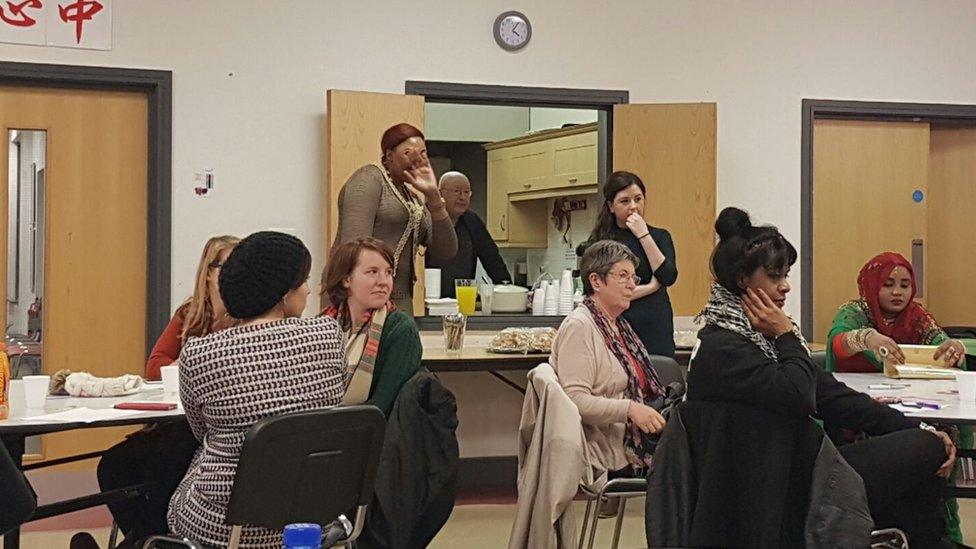
The event was open to the public and took place at the Chinese Welfare Centre on Saturday as part of the Northern Ireland Human Rights Festival
Yosra added that she has found it easy to make friendships since arriving with her husband and son. They are also expecting another child.
"The people have been very kind, and I feel much better because of their support and advice."
'Heart-breaking'
Latoya came to Northern Ireland from Zimbabwe in 2013, with no family, no friends and no qualifications - but she said she always had hope for a new start.
"I'm trying to do my English and Maths GCSES, and I've also started at Belfast Metropolitan College, where I'm doing a level 3 personal training and fitness instructor course," she said.
However, despite Latoya's determination to get a good education, it has not always been easy.
"I don't have anyone," she said.
"I came on my own, and the heart-breaking thing about it is that I don't know how to get in contact with my mum, or my family back home."
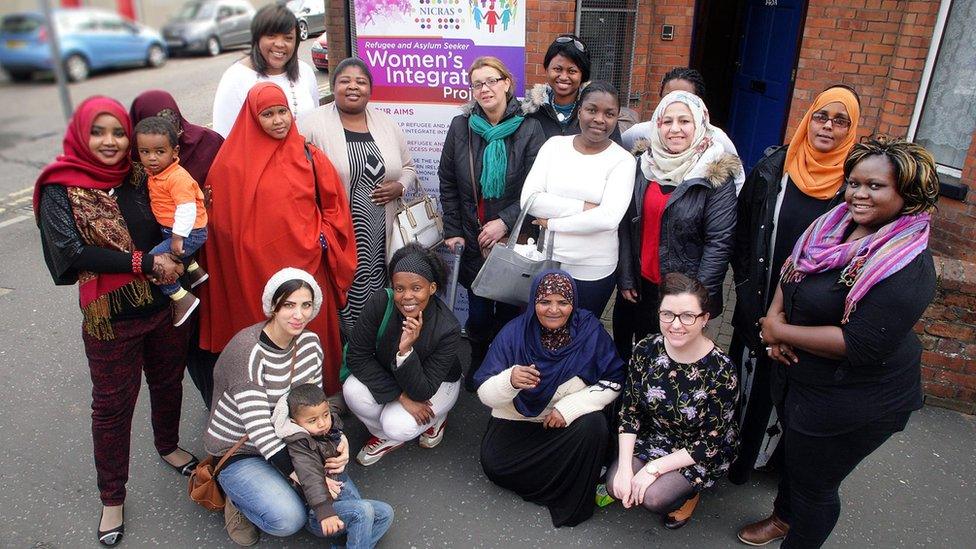
Some of the women refugees who are trying to adapt to life in Northern Ireland with the NICRAS women's integration project
Asked if she thinks she will ever return to Zimbabwe; Latoya's reply is matter-of-fact but very sad.
"I wish to be with family, but even if I was to go back home what would I be going to?" she said, "If I arrived at the airport they'd kill me straight, that's how it is, I ran away in fear for my life."
'Adapting to Irish stew'
Kanyesa, who is also originally from Zimbabwe and arrived in Belfast three years ago, said her experiences here have been mainly positive.
"At times like now, at Christmas, it's very hard, but it is great," she said.
"I'm still learning, my English is getting better - I'm still adapting to Irish stew too, my kids love it."
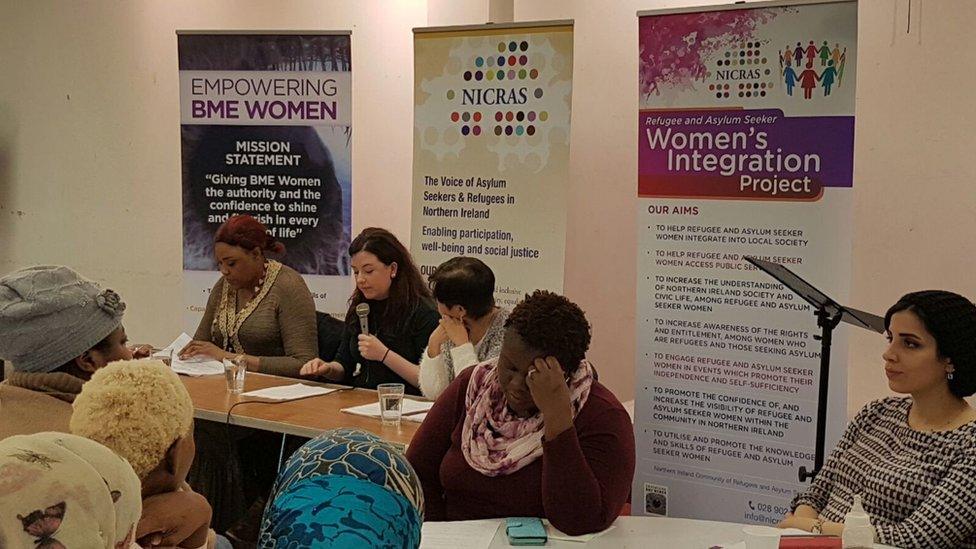
Mimi, left, moved to Belfast from the Congo in 2009 and said she found it very hard to adjust
Kanyesa added that while her home is now in Northern Ireland and that her children love living here, she makes a conscious effort to share her Zimbabwean culture with people in Northern Ireland.
"I share it with my neighbours, who are great, and my culture is a big part of who I am," she said.
'Home for me'
Out of all the women I spoke to, Mimi has been living in Northern Ireland for the longest period of time. She arrived in January 2009 from the Democratic Republic of Congo.
"In the beginning, it was so difficult for me, life was so horrible," she admitted.
"Coming into this situation is not an easy life, I spoke no English - just 'Hi, how are you'. Basic phrases only."
Mimi said the last seven years have brought their challenges, but today, she has a vastly different outlook than when she first arrived, alone and scared.
"Northern Ireland for me looks like home - I love it.
"I'm not sure if today I could go back to my home country, now Northern Ireland is home for me."
- Published4 September 2015
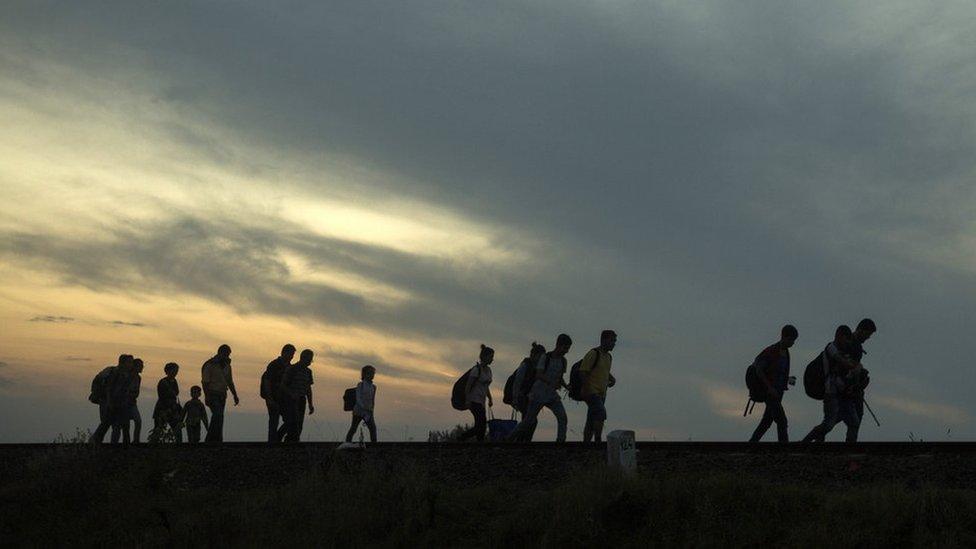
- Published28 June 2016
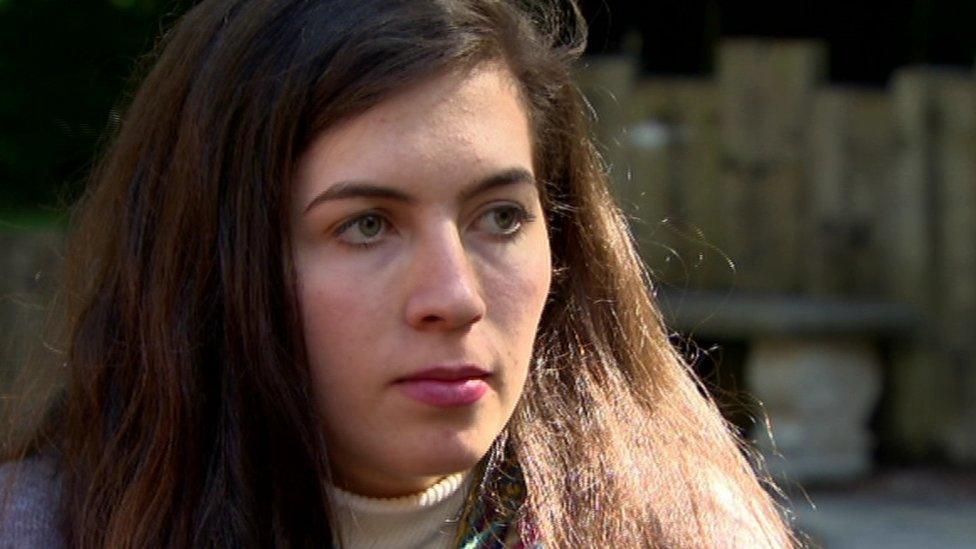
- Published28 April 2016

- Published15 January 2016
